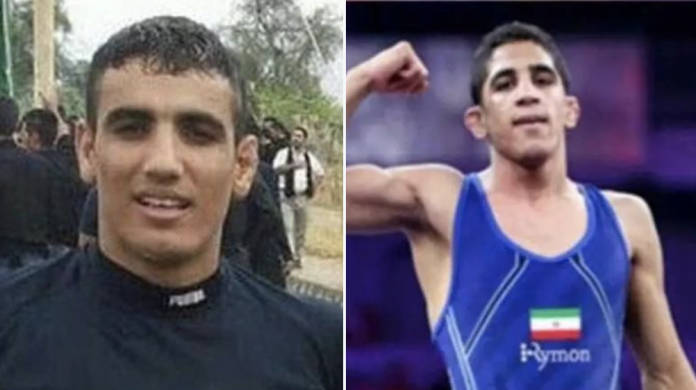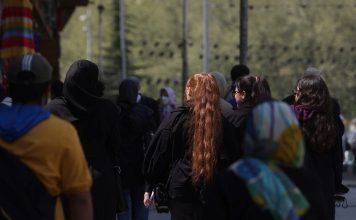Iran’s judiciary has sentenced the 29-year-old wrestler Mehdi Ali Hosseini to death in a move that the International Olympic Committee (IOC) is yet to denounce. The IOC’s silence has been called “cowardly,” by British lawmaker Lord John Mann.
Iranian wrestler Mehdi Ali Hosseini, 29, from #Iran‘s Khuzestan Province–sentenced to death after being accused of murder–has been given one week to get a pardon from the victim’s family. #StopExecutionsInIran pic.twitter.com/yARDq1hrcy
— IranHumanRights.org (@ICHRI) January 12, 2021
Mehdi Hosseini was arrested in 2015 and charged with the murder of a young man during a group brawl. Hosseini’s execution, which was due to be carried out last week, was postponed for seven days to allow him to get a pardon from the victim’s family. Under Islamic Law, which underpins much of Iranian legislation, a person found guilty of murder can avoid the death penalty in exchange for financial damages if the victim’s relatives agree to a pardon. The family of the victim has so far refused to pardon Hosseini.
THIS BREAK MY HEART https://t.co/zwVHX0sMsg — The Iron Sheik (@the_ironsheik) January 11, 2021
Speaking to Kayhan Life, Lord Mann said, “The International Olympic Committee should be speaking out. It’s a blight on the Olympic movement that the IOC has been too timid and cowardly to speak out.”
“This represents a direct attack on the values of the Olympics. It’s very straightforward: for the Olympics to be anything more than about money, they need to prove it,” he added.
The International Olympic Committee has said it will not comment on detentions or death sentences for athletes unless their cases are sports-related.
Lord Mann acted as parliamentary private secretary to Tessa Jowell in the runup to the 2012 Olympics in London, while she was the secretary of state for culture and sports.
“That’s a cop-out,” Lord Mann said. “The IOC should be protecting the lives of Olympians and potential Olympians.”
Hosseini’s death sentence follows the execution of champion wrestler Navid Afkari, who was charged with the murder of a security guard during the 2018 protests in Iran. Afkari denied the charge and said he had been tortured into making a confession. His death sentence and execution prompted a global outcry.
Human rights experts have said the sentences for Afkari and Hosseini fall under an arbitrary detention policy whereby the Iranian government unjustly imprisons its citizens as well as Iranian dual nationals who travel to Iran, in an apparent effort to intimidate dissidents and gain political and diplomatic leverage.
Middle East analysts have suggested that Hosseini’s death sentence may have been brought forward to try to frustrate talks with the new U.S. administration. U.S. President Joe Biden could decide to revive the 2015 nuclear deal and introduce major limitations on Iran’s nuclear program, which Tehran is unlikely to accept.
On Jan. 19, UK Foreign Minister Dominic Raab said the 2015 nuclear deal would be one of the British government’s first items for discussion with the Biden administration, but did not confirm whether those talks would include addressing Iran’s human rights violations in any new agreement.
Lord Mann said a nuclear deal with Iran “should address the Iranian government’s arbitrary detentions and human rights violations, and I think that would be the overwhelming view and consensus among the majority of the British Parliament. The British government should do all that it can to ensure its citizens are not arbitrarily detained in Iran or any other country.”
Calls to halt Hosseini’s execution have been made by Amnesty International, human rights activist Masih Alinejad, the Iran Wrestling Federation and several Olympic athletes including Hossein Khosrow Ali Vaziri, who is also known as the Iron Sheik.
The execution of the Iranian wrestler from the city of Andimeskh, Mehdi Ali Hosseini, has been postponed by one week. I opposes all executions. We hereby ask the international community to step in and prevent another tragedy.#StopExecutionsInIran pic.twitter.com/kM2Wacp5HH
— Masih Alinejad ?️ (@AlinejadMasih) January 11, 2021
In November Richard Ratcliffe, whose wife Nazanin Zaghari-Ratcliffe was arrested in Iran and sentenced to five years’ imprisonment for “plotting to topple the Iranian government,” said measures to secure the release of dual nationals had to be part of any nuclear deal with Iran.
Responding to Navid Afkari’s execution, Nobel Prize winner and human rights lawyer Shirin Ebadi joined a call in October to ban Iran from international sports tournaments. The campaign, which was supported by prominent Iranian athletes, actress Nazanin Boniadi and Afkari’s mother, went viral on the internet.
Lord Mann said the International Olympic Committee should be calling for Mehdi Hosseini’s execution to be stopped immediately.
“The Iranian people and their culture stem from an incredibly long civilization, with a world leading cultural tradition that has been besmirched by those at the top in their desperation to clamp down on critical voices,” he said.
“Britain should have the opportunity to challenge Iran’s government, and we include international bodies we belong to like the United Nations, the United Nations Human Rights Council and the IOC.”





